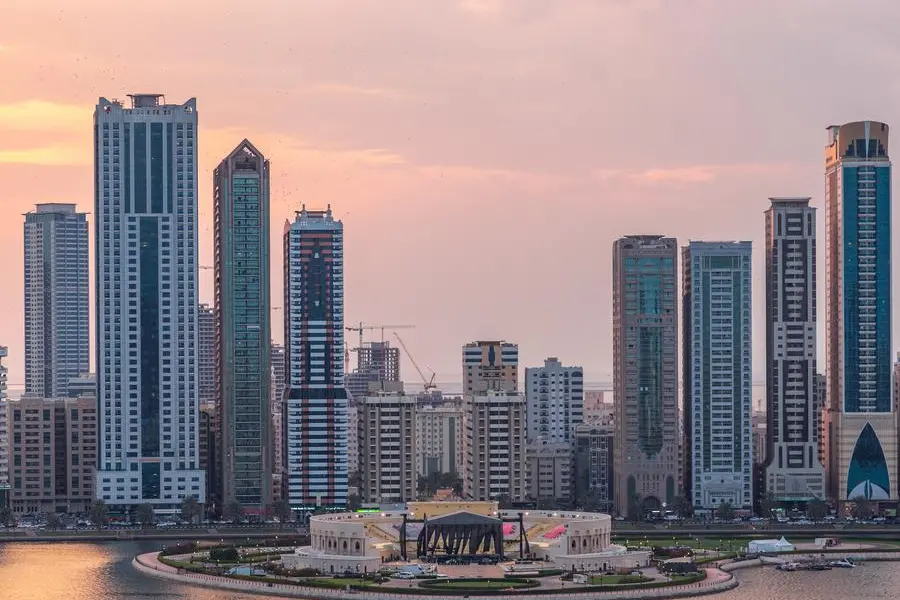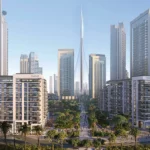Now Reading: Dubai Real Estate Prices May Drop 15 Warns Fitch
-
01
Dubai Real Estate Prices May Drop 15 Warns Fitch
Dubai Real Estate Prices May Drop 15 Warns Fitch

Dubai real estate prices have been on a rollercoaster ride over the past few years. After an astonishing 60% surge in property values between 2022 and early 2025, experts now say the market may be heading for a cooling phase. According to Fitch Ratings, Dubai real estate prices could drop by as much as 15% in the near future. The global credit rating agency has raised concerns about oversupply, with more than 200,000 new units expected to be delivered in the next two years.
This projection has sent waves of concern across investors, homeowners, and developers. Will Dubai’s property boom finally hit a ceiling, or is this a natural correction in an otherwise resilient market? Let’s explore the key factors shaping this turning point.
Dubai Real Estate Prices Surge Since 2022
In the last three years, Dubai has enjoyed one of the strongest property booms in the world. Luxury villas, beachfront apartments, and high-rise penthouses all saw demand skyrocket. A mix of factors drove this growth:
- An influx of wealthy foreign buyers seeking tax-friendly investments.
- Population growth fueled by residency reforms, Golden Visas, and business-friendly policies.
- High rental yields attracting international investors.
- Post-pandemic recovery, with real estate seen as a stable asset in uncertain global markets.
Between 2022 and early 2025, prices jumped by around 60%, pushing Dubai real estate into the global spotlight. Some analysts even compared it to the boom years of the mid-2000s.
But now, Fitch warns that the market may not be able to sustain this pace.
Why Fitch Predicts a 15% Drop
Fitch Ratings is sounding the alarm primarily because of oversupply risk. Developers in Dubai are currently working on ambitious mega-projects that will add more than 200,000 new housing units by 2027.
When supply outpaces demand, prices often fall. Here’s why:
- Too many units hitting the market – making it harder for developers to sell at premium rates.
- Cooling investor demand – as global interest rates rise, some investors may turn cautious.
- Rental pressure – with more apartments and villas available, landlords may face slower rental growth.
- Market maturity – unlike the early 2000s, today’s buyers are more value-conscious, and speculative buying has slowed.
According to Fitch, this combination could cause Dubai real estate prices to correct by 10% to 15% in the coming period.
Oversupply: The Biggest Challenge
Oversupply has always been a recurring theme in Dubai’s property cycles. In the past, the city’s fast-paced construction has sometimes led to short-term imbalances. However, Dubai has also proven its ability to absorb demand over the long run.
Currently, the pipeline includes:
- 73,000 new homes set for delivery in 2025 alone.
- Major developments around Dubai Creek, Palm Jebel Ali, and Business Bay.
- Expansions into suburban and affordable luxury areas to attract mid-level investors.
The question is whether demand can keep up with such rapid supply.
Can Demand Balance the Market?
While oversupply is a risk, demand for Dubai real estate is not slowing down entirely. In fact, several factors could cushion the potential drop in prices:
- Foreign investment remains strong – especially from European, Russian, Chinese, and Indian buyers.
- Golden Visa schemes encourage long-term property ownership.
- Population growth continues as Dubai attracts expatriates, entrepreneurs, and digital nomads.
- Tourism boost – short-term rental markets like Airbnb remain profitable in popular districts.
If these demand drivers continue, Dubai may avoid a steep crash and instead face a moderate adjustment.
What Does This Mean for Investors?

For investors, a potential 15% correction is both a challenge and an opportunity.
- Short-term investors who bought at peak prices may see lower returns if they plan to sell quickly.
- Long-term investors could benefit, as a dip in prices may allow for better entry points before the market stabilizes again.
- Rental investors may still find strong yields, especially in affordable and mid-market segments.
Experts advise caution but also highlight that Dubai remains one of the world’s most attractive property investment hubs.
Comparing Dubai to Other Emirates
While Dubai is at the center of attention, other emirates may respond differently to these trends:
- Abu Dhabi – Focused on luxury projects and long-term sustainability, less vulnerable to oversupply.
- Sharjah – Affordable housing continues to attract families, with stable growth.
- Ras Al Khaimah – Boosted by tourism and mega-resorts, especially with the upcoming Wynn casino resort.
- Umm Al Quwain and Ajman – Smaller markets, offering affordability for UAE residents priced out of Dubai.
This suggests that even if Dubai real estate prices face a correction, the ripple effect across the UAE may be uneven.
Is This a Market Crash or a Healthy Correction?
It’s important to distinguish between a market crash and a correction. A crash implies sharp, long-lasting declines driven by panic selling. A correction, on the other hand, is a temporary adjustment that brings balance.
Most experts, including Fitch, see the coming drop as a correction rather than a crash. Dubai’s strong fundamentals—business-friendly policies, global appeal, and infrastructure development—remain intact.
The Road Ahead for Dubai Real Estate
Looking ahead, several trends will shape the market:
- Shift Toward Affordable Luxury – Developers may target mid-income buyers as demand for ultra-luxury slows.
- More Community Living Projects – Family-friendly areas outside the city center will gain popularity.
- Digital Real Estate Transactions – Tech adoption will simplify property ownership for international buyers.
- Sustainability Focus – Green and energy-efficient projects will attract eco-conscious investors.
If these trends play out, Dubai will continue to thrive even if real estate prices undergo short-term adjustments.
Final Thoughts
Dubai real estate prices have delivered massive gains in recent years, but the market is now at a turning point. Fitch’s warning of a potential 15% price drop should not be ignored, especially with 200,000+ units flooding the market in the next two years.
Still, this does not spell doom. For savvy investors, it may be a golden chance to buy at slightly lower levels in a market that has consistently bounced back stronger after every correction.
Dubai has always been a city of bold ambitions, and its real estate sector is no exception. While short-term turbulence may lie ahead, the long-term story of Dubai real estate remains one of resilience, growth, and opportunity.
Do follow us : Instagram
Read More-Abu Dhabi secondary property market surges 53 percent






















